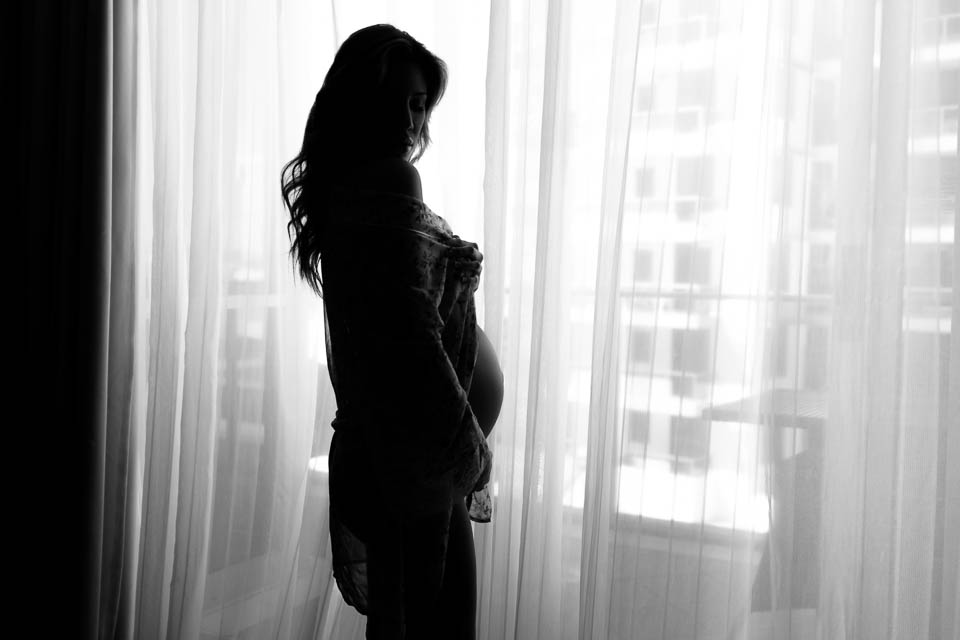Becoming a mum is a beautiful journey that can be also scary for many reasons. Your body goes through a lot of change and your relationship with your partner changes as well. Your life will be turned upside down, for good. But there is also a secret that many women do not tell about their pregnancy, and it is called Internal Organ Prolapse.

What is an internal organ prolapse?
You know when you get pregnant, and all of the sudden your GP recommends you to do some exercises for your pelvic floor muscles? That was the first time that I got to know about my pelvic floor. Actually, the second time. The first time was in a Pilates class.
Our pelvic floor is responsible for maintaining our internal organs (vagina, uterus, bladder, or bowel) in place. Mainly, your pelvic floor is the foundation over which our internal organs lay.
When the pelvic floor becomes weak an internal organ prolapse occurs, and one or more of them can literally slide down and try to get “out”. You get the picture, and it is hardly a pretty one.
A lot of women who gave birth with natural birth are affected by internal organ prolapse. From some numbers from the NHS, internal organ prolapse, to various degrees, affects 50 % women who gave birth. And I am one of them.

Information is the key to prevention
I had a baby almost 6 years ago. My pregnancy was a fairly uncomplicated one. I had a pretty long labour. A long baby. A great team of midwives. I had no stitches, not a single one. So, everything went pretty well.
Once I had the baby, nobody told me to continue exercising my pelvic floor muscles. Maybe, for many it is only common sense to just keep on doing it, but because I didn’t know, I did not do it.
I started worrying when sneezing got me in some pretty embarrassing situations. But I am not 70 years old, not even close.
Because my mum had the same problem, I thought those accidents were part of the package of being through childbirth. But I was wrong. Turns out, my mum has an internal organ prolapse. She had no idea she had an internal organ prolapse until it became such an issue, it affected the quality of her life, and needed a major operation to fix it.
Many of us are too embarrassed to talk about it, but information could play a big difference in preventing an internal organ prolapse and future further damage.

What can you do to avoid an internal organ prolapse?
a. Do your pelvic floor exercises
It is as important as maintaining a healthy core. Actually, the two are linked together, because a healthy core keeps a healthy muscle tone in place, and everything works better. Exercise your pelvic floor muscles during the pregnancy, and after the pregnancy, every day. Do it when you are sitting down, lying in bed, and standing up. Every single day. It will help preventing a internal organ prolapse.
b. Maintain a healthy weight
During my pregnancy, none of the doctors I saw were concerned or interested in how much weight I was putting on. Your weight is a very important factor in avoiding internal organ prolapse.
The more weight you carry, the more pressure on your pelvic floor. And, if you, like me, have a situation of internal organ prolapse in the family, it can be a good idea trying to stay within ab healthy range of 10–12 kg. maximum during your pregnancy.
I had a polyhydramnios pregnancy, and that meant that I was carrying more weight than normal because of the excess of amniotic fluid. I should have been extra careful. But I was unaware of what consequences that the extra weight could have on my pelvic floor, so I underestimated this aspect of my pregnancy.

c. Avoid straining when going to the toilet
Again, I am sorry for the not very glamorous picture in your mind right now, but it is an important piece of advice. Many people that deal with constipation have this issue, but straining can make an internal organ prolapse worse. Actually, constipation can be one of the challenges you can face when you have an internal organ prolapse, and the advice is to drink water. A lot of it. Water helps your body eliminate toxins and make your evacuation easier and smoother.
d. Avoid lifting heavy weights
You need to be mindful with weight lifting, especially after having had a baby because your core muscles will be weaker for a while. But aside from lifting your baby, unless you do it in the gym, and supervised by a trainer, be careful. You will not only risk to strain your back and knees, but also your internal organs are under pressure.

e. Having a natural birth is always a bit of a risk
My ideas could be very unpopular here, but when you go through a natural birth, and you face a long labour and a big baby, it puts you at risk of having an internal organ prolapse. I am not suggesting that is going to happen to you, or that having a cesarian section is a best solution, but be mindful of your options. And believe me, you are not less than a mother if you have a caesarian section.
There are many stages to an internal organ prolapse, however, the soon you get it diagnosed, the better. There are things you can do to help without going through a major operation. I have worked with a physiotherapist who helped me massively and I feel now I am better in control of the consequences of my internal organ prolapse.
In any case, if you think of having a baby or you just had one, please be mindful of the possibility of facing an internal organ prolapse and take care good care of yourself. Had I had certain information before, I might have avoided some of the issues I am facing now.
I hope you liked the article, and if so, please share it with your friends.

